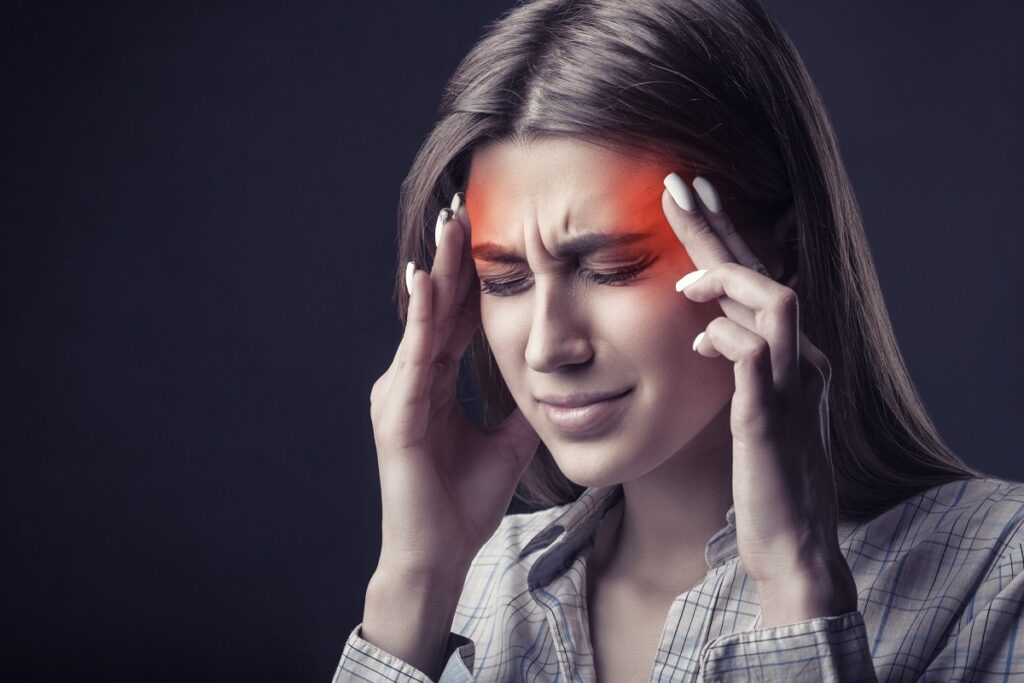
Did you know that 40 percent of people will experience vertigo at some point in their lives?
Do you (or someone you love) struggle with vertigo? Have you ever wondered what vertigo is or how many different types of vertigo there are?
Read on to find the answers to these and other pressing vertigo questions.
Contents
What Is Vertigo?
If you’ve ever found yourself feeling off-balance or as though the room is spinning, you’ve experienced vertigo. Now it makes sense that at least 40 percent of people have experienced it at some point, doesn’t it?
It’s important to note that vertigo is different from lightheadedness. A key tenet of vertigo is a feeling that the world is spinning. Lightheadedness, on the other hand, is characterized by feeling as though you’re going to faint.
Vertigo Symptoms
Vertigo feels a bit different for everyone. However, most people who’ve dealt with it report the following symptoms:
- Spinning, swaying, or tilting
- Feeling unbalanced
- Feeling pulled to one direction
These symptoms, in turn, can trigger others, including nausea, vomiting, headaches, and sweating. You might also develop a ringing sensation in your ears or strange, jerky eye movements (this is known as nystagmus).
Vertigo Causes
Many different issues can cause vertigo. Inner ear issues, like those outlined below, are some of the most common:
- BPPV (Benign Paroxysmal Positional Vertigo): This condition occurs when calcium particles collect in your inner ear, which plays an important role in helping you to maintain your balance
- Meniere’s disease: This is another inner ear disorder, typically attributed to fluid buildup and pressure changes
- Vestibular neuritis/labyrinthitis: This inner ear problem is usually related to ear infections, which lead to inflammation around the nerves
In addition to inner ear conditions, other problems can lead to vertigo. This includes head and neck injuries, migraines, brain conditions (strokes, tumors, etc.), and medications that cause ear damage.
How Many Types of Vertigo Are There?
There are two primary types of vertigo: Peripheral and central vertigo.
Peripheral Vertigo
Peripheral vertigo is associated with inner ear problems. BPPV is a common cause of peripheral vertigo.
The following are some other potential causes:
- Medications like diuretics, aminoglycoside antibiotics, cisplatin, and salicylates (all of which can be toxic to your inner ear structures)
- Head injuries
- Neuronitis (inflammation of the vestibular nerve in the inner ear)
- Vestibular nerve pressure (which is usually caused by noncancerous tumors like meningiomas or schwannomas)
Conditions like labyrinthitis and Meniere’s disease can also contribute to peripheral vertigo.
Central Vertigo
Central vertigo is the result of a brain problem. Typically, the problem is associated with the brain stem or cerebellum (the back portion of the brain).
The following are some of the most common causes of central vertigo:
- Blood vessel diseases
- Drugs like alcohol, anticonvulsants, and aspirin
- Multiple sclerosis
- Seizures (in rare circumstances)
- Strokes
- Tumors (both cancerous and noncancerous)
Vestibular migraines can also lead to central vertigo. Vestibular migraines are a unique type of migraine that may or may not be accompanied by a headache.
How to Relieve Vertigo
If you struggle with vertigo, there are lots of steps you can take to manage your symptoms. The following are some effective strategies to keep in mind:
Cannabis
Since cannabis is a powerful antiemetic, it has the potential to offer many sufferers relief from the vomiting and nausea associated with vertigo. It appears that marijuana can activate certain endocannabinoid receptors. These receptors are responsible for sensations in the nervous system. Cannabis can be split into three main strains; sativa, indica, and hybrid, each offering different effects. With this in mind, you can learn more here about the sativa strain.
Gingko Biloba
Some research shows the supplement Ginkgo biloba can benefit those suffering from vertigo.
Ginkgo biloba is an herbal supplement that comes from the Ginkgo biloba tree. It boosts blood flow throughout the body (including to the brain) and is used in traditional Chinese medicine to manage a variety of ailments, including depression and low libido.
Stress Management
People who suffer from conditions that cause vertigo, such as Meniere’s disease, often find that their symptoms get worse when their stress levels are high. By taking steps to manage your stress, you can minimize the frequency and severity of your vertigo spells.
Everyone has different preferences for stress management. You could read a book, go for a hike, meditate, or work out at the gym. Do some experimentation to find a practice that works well for you.
Yoga
Another way to manage your stress is to adopt a mind-body practice like yoga. Yoga can help you feel more relaxed, and it can help you to improve your balance and proprioception (awareness of your body) at the same time.
Better Sleep
If you’re chronically sleep-deprived, you might be more prone to both migraines and the vertigo that migraines can cause. Make an effort to stick to a sleep schedule, and avoid things that may impair your sleep quality. This might include watching TV or scrolling on your phone late at night or drinking caffeine in the afternoon or evening.
Hydration
Sometimes, dehydration can cause vertigo. Make sure you’re drinking plenty of fluids throughout the day, especially if you’re spending a lot of time outside or are doing intense, sweaty workouts.
Keep in mind, too, that alcohol is a diuretic that can cause dehydration and may be linked to central vertigo, specifically. If you do drink alcohol, drink plenty of water alongside it to make up for its effects.
Vertigo Exercises
There are certain exercises for dizziness that you ought to practice regularly if you deal with vertigo often. One such exercise is a gaze stabilizing exercise.
Gaze stabilizing exercises involve fixing your eyes on a specific object. Once you’ve identified your object, move your head slowly without shifting your gaze.
At first, you might find that tilting your head even a little bit while doing this exercise is a dizziness trigger. The more you practice, though, the easier it’ll become and the less prone to vertigo you’ll be.
Combat Vertigo Today
Now that you know more about the different types of vertigo and how to manage them, it’s time to take action.
Remember the information outlined above, especially the natural vertigo relief tips. They’ll help you stay on top of your symptoms and start feeling better as soon as possible.
Do you need more advice on vertigo or another condition? If so, head to the Health section of our site today to find all kinds of helpful articles.

